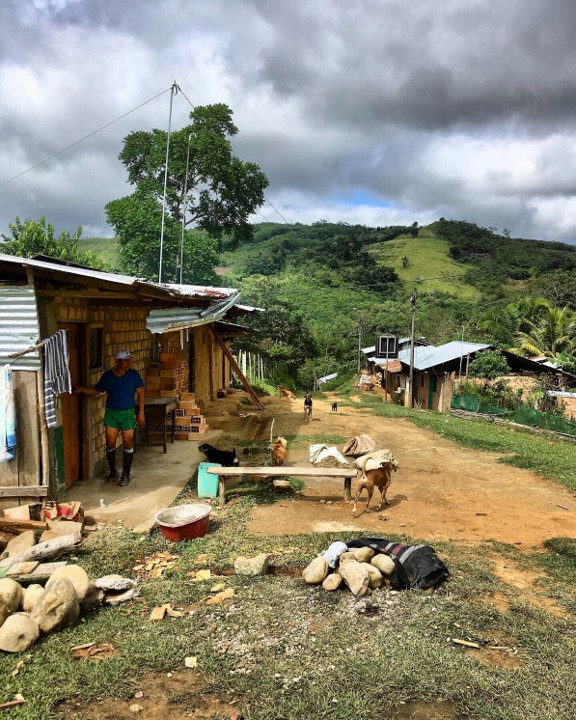Rural communities in the Peruvian Amazon are confronting the coronavirus on their own
By Anna Heikkinen

San Roque community in the Peruvian Amazon region has taken strict measures
to protect their community members from Covid-19. Photo: Anna Heikkinen
Indigenous and peasant communities across the Peruvian Amazon region have taken the management of the coronapandemic in their own hands. Many have blocked access to their villages and tightened surveillance over their territories to protect themselves from the Covid-19.
Over the past eight weeks, the peasant community of San Roque in the Peruvian Amazon region has followed rigid measures to avoid the spread of coronavirus.
“Since the president of Peru declared a state of emergency for the coronavirus on March 16th, we decided to begin with strict control in our community. We blocked the road three kilometers away from the village and formed security groups. Now each of them has their own guarding turns to restrain access to our community”, tells Genrry Lopez Ruiz, head of San Roque community’s social aid commission, in a phone interview at the end of April.
The rural Amazon area is one of the most vulnerable regions in Peru in front of Covid-19. Access to sanitation, potable water or health care is among the lowest in the country. Moreover, deforestation and extractive activities, such as oil drilling and mining, are exposing the Amazonian populations to elevated levels of environmental contamination.
Before the Covid-19 outbreak, the tropical regions across Latin America were struggling with another severe health threat: dengue. According to the World Health Organization (WHO), in 2019 the continent saw the highest record in dengue cases in history with over 3 million infected and over 1,500 deaths. In the beginning of February 2020, the Ministry of Health of Peru declared a state of emergency due to an extending dengue epidemic in the Amazonian departments of Loreto, Madre de Dios and San Martín.
The community of San Roque is located in the department of San Martín, one of those regions with the highest number of dengue cases in Peru. Recent experience with the dengue has increased worries among the community members over their safety.
“In February, we had two persons infected with dengue. They were people outside of the community who had come for some temporal forestry work. Now we are very strict with whom we let in. Anyone who enters the community is sprayed throughout with disinfectants. It is harsh, but we do it to protect our community”, Lopez Ruiz tells.
San Roque has a small health care center that is shared by its 1,300 inhabitants. According to Lopez Ruiz, until now the health care has been working properly, as none of the community members has yet been infected by the Covid-19.
“During the pandemic, we have received some help from the government but there could be more. We are used to managing things on our own, as we say, the community never sleeps. We have worked hard to develop our health care and sanitation long before the coronavirus. Now our only worry is that we are running out of plastic gloves, masks and Covid-19 tests. There is not much left and without proper equipment there is a risk that the virus will spread”, Lopez Ruiz tells.
In San Roque, most of the people receive their livelihoods from small-scale agriculture. During the pandemic, the families have sustained themselves mostly with self-cultivated products such as cacao, peanuts, plantains and corn. There is also a strong tradition of sharing foods and other items among the community members.
“There hasn’t been any panic in San Roque during the coronavirus. We have always been well organized and we have our fields that feed us. Now in the cities people are losing their minds for the fear of running out of food. Before the coronavirus outbreak, the rural people were forgotten in our country. Nobody cared about us. Now suddenly the Peruvian small-farmers have become really wanted. I hope this change in mentality will last even when the virus will be tackled”, Lopez Ruiz ponders.
Anna Heikkinen is a doctoral researcher in Development Studies at the University of Helsinki. Her current research focuses on water governance, climate vulnerabilities and socio-environmental conflicts in Peru.